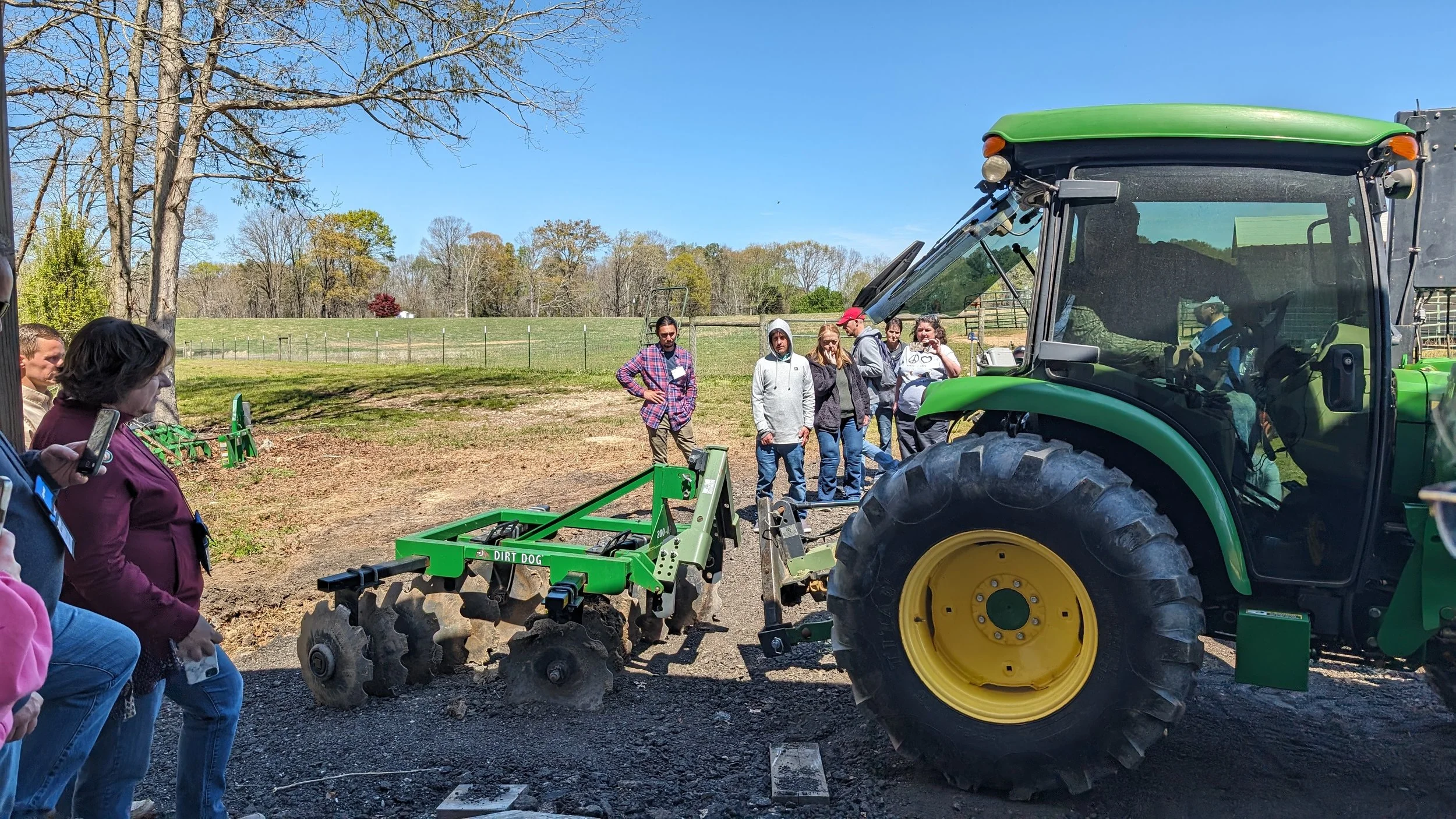National Training Workshop Reflections
Every year the National AgrAbility Project (NAP) hosts the National Training Workshop (NTW), which brings together AgrAbility staff, clients, partners, and collaborators from around the country to share ideas, professional development, and provide technical resources. As a new staff member, I had been looking forward to this event since I first learned about it and the NTW did not disappoint. This year’s conference was held in Atlanta. It was the largest NTW to date, with 270 attendees from 38 states, Guam, and even a small team from South Korea. Other Michigan attendees included Ned Stoller, Assistive Technology Professional, who delivered several sessions, and Cade Krieger and his mom, Katrina, whose trip was sponsored in part with support of The Andersons. I left with three key takeaways from the conference.
First, AgrAbility does incredibly meaningful work. The vision of the program is “to enhance quality of life for farmers, ranchers, and other agricultural workers with disabilities, so that they, their families, and their communities continue to succeed in rural America.” This can be done in several ways, from changing processes on the farm to installing assistive technology that helps alleviate safety risks. One of the lunch speakers was an AgrAbility client and owner of Farm Bureau Farm Dog of the Year, Skippy. During the banquet dinner, a veteran who had started farming after his military injury offered the keynote about how finding agriculture had changed the course of his life. He was hilarious, well-spoken, and genuine. Several sessions focused on evaluating the program and ensuring that we are improving on quality of life, and all signs point to a resounding yes. This was also evidenced by the clients in attendance, and their shared lived experience with the program.
The keynote speaker delivers a presentation during the NTW Banquet.
Next, everyone was incredibly friendly and open. I was admittedly intimidated to travel across states to attend an event where I knew one person, but during the first networking hors d'oeuvres opportunity, a veteran small livestock farmer from Indiana introduced himself, and then the people he knew from across the state – and Purdue hosts the National Program staff, so there is a large following in Indiana – joined us, introduced themselves, and shared their work. An Extension Educator from Alaska told us about her experience coming from 4-H into AgrAbility. Other active military members checked in. A new educator in Indiana shared his story and his goals for his outreach role. Before and after sessions, we had many opportunities to connect, follow up on sparks of ideas that had been shared in sessions, and talk more. I left with a fleet of folks I can reach out to at any point and know they will be there to support our project here in Michigan.
Finally, the content itself was extremely valuable. A good conference is usually delineated by the content of the sessions, and this one was chock-full of content that made it difficult to choose between what to attend. I focused on the quality of life, outreach, and networking sessions. Since Ned was a speaker and I am fortunate to have his presence here in Michigan. We are planning an Assistive Technology Regional Workshop in July, so these are concepts and tools that I can continue to learn in the field.
Another highlight of the experience was attending a post-conference tour where we visited a mushroom farm operation, the Dirt Dog facility that manufactures tractor and skid steer attachments, and a small farm belonging to an AgrAbility client with sheep and other livestock. It was a beautiful day in northeast Georgia, and each of the stops on the tour had valuable story. It was also insightful chatting with the folks around me on the bus: a professor who had just started a Disability Services program at Faulkner University and two occupational therapists from the Southeast. The different perspectives, questions, and experiences that everyone brought to the tour were invaluable and I was grateful to be able to attend.
Jiffy Hitch Demo
This system allows the operator to quickly and easily switch implements without getting out of the tractor.
Overall, the conference not only met but far exceeded my expectations. I came away with greater knowledge of the program and a better understanding of the ways it is implemented in different states, ideas for additional opportunities we may be able to provide, better evaluation tools, and a strong network of people who believe in the program and are deeply supportive of one another’s efforts. Ultimately, we are all trying to help improve the quality of life for farmers and their families in each of our states, and as the growing season takes off, I look forward to serving our ag community here in Michigan.
Samantha Wolfe, MSU Extension
Written for Michigan AgrAbility
wolfesa4@msu.edu
This work was supported by the AgrAbility Competitive Program of the USDA National Institute of Food and Agriculture (NIFA), grant number 2022-41590-38121.


